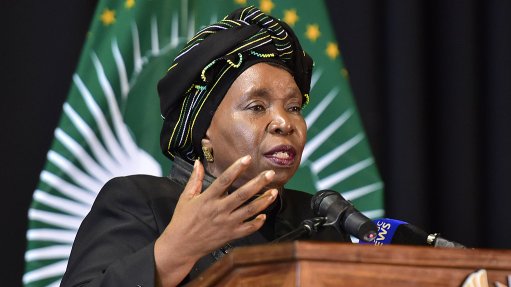
Nkosazana Dlamini-Zuma
Former African Union Commission chairperson and African National Congress presidential hopeful Dr Nkosazana Dlamini-Zuma delivered the key address at the Gordon Institute of Business Science forum in Johannesburg on Tuesday, where she acknowledged the various challenges facing South Africa.
While much has been achieved in the democratisation of the country, she stated, there were still challenges to address such as poverty.
Statistics South Africa recently published a survey which revealed that many South Africans were still living below the poverty line, with more than half of the population under the age of 35 unemployed.
Visible Inequality and Crime
“A small population still live in opulence while a large number still live under conditions of squalor in some cases,” Dlamini-Zuma stated, adding that violence and crime were common where there was visible inequality within and between communities.
Education and skills are the fastest equalisers to bridge the inequality gap, she suggested.
She said there was a lot to be achieved by South Africans despite the many challenges, including patriarchal issues, land issues and high levels of corruption.
“At the core, South Africans want a country that is democratic, prosperous, peaceful, non-racial, non-sexist, as well as a more equal society which is inclusive and growing economically and which creates opportunities for all,” Dlamini-Zuma said.
Economy
She pointed out that the country’s economic trajectory was yet to recover following the financial crisis in 2008.
The skills deficit in the country was an issue that needed to be tackled to alleviate poverty.
Dlamini-Zuma also alluded to the fact that a paradox remained between government and the private sector, in that government’s deficit continued to accrue while the private sector had a significant amount of cash but seemed reluctant or hesitant to “assist” by investing in the domestic economy.
“In Africa people used to exclude South Africa in statistics because they said our economy was too big but now they exclude us because they say we are distorting the economy because we are not growing,” she said, referencing how the country’s growth rate was a drag on the growth rate in Southern Africa.